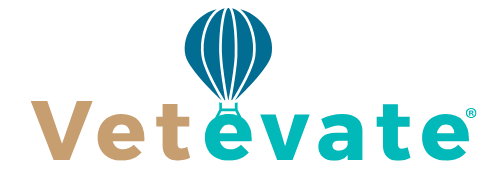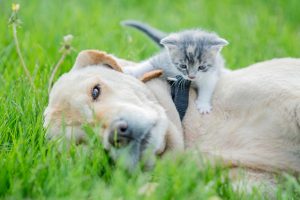Working with animals is a rewarding career that many people aspire to pursue. Whether you want to be a veterinarian, a zookeeper, an animal behaviorist, or any other animal-related profession, it’s important to be prepared when searching for a job in this field. Below are five reasons why being prepared is essential when trying to find a job working with animals.
#1—Competition is high.
One of the primary reasons why it’s important to be prepared when trying to find a job working with animals is because the competition is high. There are often many qualified candidates competing for a limited number of positions. This means that you need to stand out from the crowd if you want to land the job.
Being prepared means that you have the necessary education, training, and experience to compete with other candidates. It also means that you have a strong understanding of the industry and the job requirements. By being well-prepared, you can increase your chances of being selected for an interview and ultimately getting the job.
#2—The industry is constantly changing.
Another reason why being prepared is important when trying to find a job working with animals is that the industry is constantly changing. New technologies, research, and trends are emerging all the time, and it’s essential to stay up-to-date if you want to succeed in this field.
Being prepared means that you are familiar with the latest industry trends and technologies. It also means that you are constantly learning and improving your skills. This will help you to stand out from other candidates and demonstrate to employers that you are committed to staying up-to-date with the latest developments in the industry.
#3—Animal care requires specialized knowledge and skills.
Animal care is a complex field that requires specialized knowledge and skills. Whether you’re working with domesticated animals or exotic species, it’s important to have a strong understanding of animal behavior, health, and nutrition. You also need to be able to handle and care for animals safely and effectively.
Being prepared means that you have the necessary education, training, and experience to provide high-quality animal care. It also means that you have the necessary certifications and licenses required for the job. By being well-prepared, you can demonstrate to employers that you have the specialized knowledge and skills required for the job.
#4—Employers want to hire the best candidates.
Employers want to hire the best candidates for their animal-related positions. They are looking for candidates who have the necessary education, training, and experience, as well as a passion for animal care. They want employees who are committed to providing high-quality care for animals and who are dedicated to the success of their business.
Being prepared means that you are the best candidate for the job. It means that you have the necessary qualifications and experience, and that you are passionate about animal care. By being well-prepared, you can demonstrate to employers that you are the ideal candidate for the job.
#5—Your reputation is important.
Finally, being prepared when trying to find a job working with animals is important for your reputation. This is a small industry, and word travels fast. If you show up to an interview unprepared or without the necessary qualifications, it could harm your reputation in the industry.
Being prepared means that you take your job search seriously and that you are committed to being a successful professional in the field. It also means that you are respectful of the employer’s time and that you value the opportunity to interview for the position.
Being prepared is essential when trying to find a job working with animals. The competition is high, the industry is constantly changing, animal care requires specialized knowledge and skills, employers want to hire the best candidates, and your reputation is important. By being well-prepared, you can increase your chances of landing your dream job and building a successful career in the animal-related career fields.
What to do if you want to work at a zoo
Working at a zoo is a dream job for many people who love animals. Whether you’re interested in becoming a zookeeper, an educator, or a researcher, there are a variety of career paths available in the zoo industry. Below are six things to do if you want to work at a zoo.
#1—Determine your career goals.
The first step in pursuing a career at a zoo is to determine your career goals. There are many different jobs available in the zoo industry, including animal care, education, research, marketing, and administration. It’s important to have a clear understanding of your career goals so that you can focus your job search on the areas that interest you the most.
#2—Gain relevant education and experience.
Once you have determined your career goals, the next step is to gain relevant education and experience. Many zoo jobs require a degree in a related field, such as biology, animal science, or zoology. It’s important to research the educational requirements for the job you’re interested in and ensure that you have the necessary qualifications.
In addition to formal education, it’s also important to gain relevant experience. This can include internships, volunteer work, or part-time jobs in animal care or related fields. Relevant experience demonstrates to potential employers that you have a strong understanding of animal care and the skills required for the job.
#3—Research zoos in your area.
Once you have the necessary education and experience, the next step is to research zoos in your area. Look for job openings on their websites or on job search engines. You can also reach out to zoos directly to inquire about job opportunities.
It’s important to research the zoo’s mission, values, and animal care philosophy to ensure that it aligns with your own beliefs and values. Additionally, it’s important to understand the job requirements and expectations for the specific job you’re interested in.
#4—Network with zoo professionals.
Networking with zoo professionals can be a valuable way to learn about job opportunities and gain insight into the industry. Attend industry events, such as conferences or workshops, to meet professionals in the field. You can also reach out to professionals on LinkedIn or other professional networking sites.
It’s important to approach networking with a genuine interest in learning and building relationships, rather than just looking for job opportunities. By building relationships with zoo professionals, you may be able to learn about job opportunities before they are posted publicly.
#5—Prepare for the application process.
Once you have identified job opportunities at zoos and have made connections with professionals in the industry, the next step is to prepare for the application process. This can include updating your resume and cover letter to highlight your relevant education and experience. It’s important to tailor your application materials to each job opportunity to demonstrate that you are a strong fit for the specific position.
In addition to the application materials, it’s important to prepare for the interview process. Research the zoo and the job you’re applying for, and prepare responses to common interview questions. Additionally, it’s important to dress professionally and arrive on time for the interview.
#6—Consider volunteer or internship opportunities.
If you’re having difficulty finding a job at a zoo, consider volunteering or interning at a zoo. Many zoos offer volunteer or internship opportunities that can provide valuable experience and connections in the industry. Additionally, volunteering or interning at a zoo demonstrates your dedication to the industry and can help you stand out when applying for jobs.
Working at a zoo is a rewarding and fulfilling career path for animal lovers. To pursue a career at a zoo, it’s important to determine your career goals, gain relevant education and experience, research zoos in your area, network with zoo professionals, prepare for the application process, and consider volunteer or internship opportunities.




